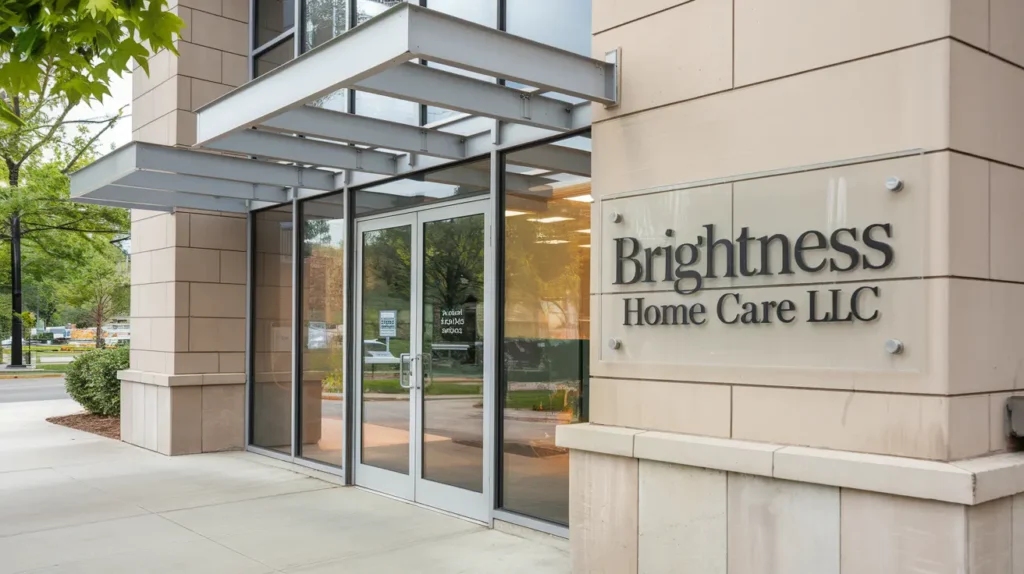Seasonal Respite Care in Indianapolis: Your Complete Guide to Finding Relief
Did you know that over 60% of family caregivers report experiencing significant burnout during holiday seasons and seasonal transitions? I’ve seen it firsthand – the emotional and physical toll that continuous caregiving takes, especially during those high-stress times of year when routines change and expectations mount. The winter holidays, summer breaks, and major seasonal shifts create perfect storms of additional responsibilities that can push even the most dedicated caregivers to their breaking point.
That’s why seasonal respite care isn’t just helpful – it’s absolutely essential for maintaining caregiver wellbeing and ensuring quality care for your loved ones. Throughout my years working with Indianapolis families, I’ve witnessed how different seasons bring unique challenges to the caregiving journey. Winter brings isolation, mobility issues, and holiday stress. Summer creates concerns about heat exposure, disrupted routines, and vacation planning complications. Spring and fall each introduce their own transitions that can throw carefully balanced care schedules into chaos.
But what exactly is respite care? Simply put, it’s temporary relief care that gives primary caregivers a much-needed break from their responsibilities. This can range from a few hours of in-home assistance to overnight stays or even longer arrangements during particularly demanding seasonal periods. Think of it as calling in a trusted pinch-hitter so you can catch your breath, recharge, and return to caregiving with renewed energy and perspective.
Here in Indianapolis, Brightness Home Care LLC has become a trusted partner for families navigating these seasonal caregiving challenges. Located at 4911 West 38th Street, their team specializes in flexible respite care solutions tailored to the unique demands of each season. Whether you’re looking for holiday coverage, summer care alternatives, or support during those tricky seasonal transitions, their professional caregivers understand that different times of year require different approaches to respite care.
In this comprehensive guide, we’ll explore everything you need to know about finding and utilizing seasonal respite care in Indianapolis – because taking care of yourself isn’t selfish, it’s an essential part of being the best caregiver you can be.
Understanding Seasonal Respite Care Needs
Man, I can’t tell you how many times I’ve seen the look of pure exhaustion on family caregivers’ faces, especially when the seasons change! After working with countless Indianapolis families through Brightness Home Care LLC, I’ve learned that seasonal respite care isn’t just a luxury – it’s an absolute necessity for caregiver wellbeing.

Let me break down what respite care actually means, since I didn’t fully understand it myself when I first started in this field. Respite care provides temporary relief for primary caregivers, giving them a much-needed break from the demanding responsibilities of caring for a loved one. It’s like calling in a trusted pinch-hitter so you can catch your breath!
The changing seasons bring unique challenges to caregiving that most people don’t even think about. Trust me, I’ve been there! During winter, mobility becomes more difficult, and isolation can worsen for both caregivers and care recipients. The holidays add extra stress with all the preparations and family dynamics (don’t get me started on trying to cook a Thanksgiving dinner while also managing medication schedules!). Summer brings heat-related concerns and disrupted routines when school’s out. Fall and spring have their own transitions that can throw carefully balanced care routines into chaos.
I remember one family I worked with who didn’t realize they needed seasonal respite until their father with dementia became increasingly agitated during the shorter days of winter. The seasonal affective disorder was real, and the primary caregiver – his daughter – was at her breaking point trying to manage his sundowning symptoms while also handling holiday preparations!
Different types of respite care are available here in Indianapolis, and I’ve helped families navigate all of them:
In-home respite care brings professional caregivers like our team at Brightness Home Care to your home. This is perfect when your loved one functions best in their familiar environment but you need to step away.
Adult day centers offer supervised activities and care during daytime hours. Great for working caregivers!
Short-term residential facilities provide overnight care when you need extended relief or have to travel.
The signs that you need seasonal respite aren’t always obvious. I’ve kicked myself for missing them in my own life! Watch for increased irritability, disrupted sleep, health problems, or feeling resentful toward your care recipient. These are all flashing warning signs that you’re approaching burnout.
The benefits of seasonal respite extend to both caregivers and care recipients. For caregivers, it provides stress reduction, time for self-care, and the ability to maintain their own identity outside of caregiving. I can’t tell you the number of times I’ve seen caregivers cry with relief after finally getting a weekend to themselves! For care recipients, respite offers socialization with new people, engagement in different activities, and sometimes even improved behavior when they return to their primary caregiver.
One thing I’ve learned from working at Brightness Home Care LLC on West 38th Street is that respite isn’t selfish – it’s essential preventative medicine for caregivers. You can’t pour from an empty cup, as they say! And seasonal transitions are exactly when that cup tends to run dangerously low.
The most successful caregiving relationships I’ve witnessed all incorporate regular respite care as part of their routine, with special attention to seasonal needs. They recognize that different times of year require different approaches, and they plan accordingly. This proactive approach prevents crisis situations and maintains better health for everyone involved.
When considering your seasonal respite care needs in Indianapolis, think about the specific challenges each season brings to your caregiving situation. Are family visits more frequent in certain months? Do weather changes affect your loved one’s mobility or mood? Does your own work schedule fluctuate seasonally? These factors all influence the type and amount of respite care that will benefit you most.
I’ve found that many families don’t realize how accessible respite care can be here in Indianapolis. At Brightness Home Care, we’ve worked hard to create flexible options that can be tailored to each family’s unique situation and adjusted as seasons change. No two caregiving situations are identical, which is why personalized assessment is so important.
The emotional component of seeking respite care is something I really understand from both sides. There’s often guilt about “abandoning” your loved one or admitting you need help. But I’ve seen time and again how quality respite care enhances relationships rather than harming them. After a break, caregivers return with renewed patience, energy, and perspective – exactly what their loved ones need most.
Holiday Season Respite Care Solutions in Indianapolis
The holiday season nearly broke me the first year I was caring for my aunt with Parkinson’s. I was trying to hang lights, bake cookies, shop for gifts, AND manage her increasingly complex care needs. Talk about a recipe for disaster! That’s why I’m so passionate about holiday respite care now that I work with families in Indianapolis.
The winter holidays create a perfect storm of challenges for caregivers. There’s the emotional weight of wanting to create meaningful celebrations while managing everyday care tasks. Then there’s the physical demands – the decorating, cooking, shopping, and cleaning – all while continuing to provide care. And don’t get me started on the financial pressure that compounds everything else! No wonder caregiver burnout spikes between Thanksgiving and New Year’s.

At Brightness Home Care LLC, we’ve developed specific solutions for Thanksgiving and Christmas coverage that have been absolute lifesavers for families throughout Indianapolis. Some caregivers need just a few hours to shop or attend a holiday event, while others require several days to travel to family gatherings. We can tailor respite care to fit either scenario – and everything in between!
I remember one client who was in tears describing how she hadn’t been able to attend her company Christmas party for three years because she couldn’t find reliable evening care for her husband with Alzheimer’s. We were able to schedule a trained caregiver who specialized in memory care to come for those specific evenings, and it made all the difference in helping her maintain her professional connections AND her sanity during the holidays.
Family gatherings present their own special challenges when you’re caring for a loved one with health needs. I’ve learned some tricks over the years that I always share with the families we serve from our location on West 38th Street. Sometimes bringing your loved one to the gathering with a respite caregiver present is the perfect solution – they get to participate while you get to actually enjoy yourself! Other times, arranging respite care at home while you attend alone works better, especially if large gatherings overwhelm your care recipient.
Indianapolis has some wonderful holiday programs that incorporate respite elements. Several senior centers offer special holiday events where caregivers can drop off their loved ones for a few hours of supervised activities. Local churches sometimes organize “parents’ day out” programs that can work well for those caring for children with special needs. At Brightness Home Care, we often coordinate with these community resources to create comprehensive holiday respite plans.
Our holiday respite packages have evolved based on what Indianapolis families tell us they need most. We offer everything from “shopping blocks” (3-4 hour care sessions specifically scheduled during weekday mornings when stores are less crowded) to “holiday weekend coverage” for those traveling to visit family out of town. One of our most popular services is New Year’s Eve overnight care – allowing caregivers to actually celebrate and start the year refreshed!
The emotional aspect of holiday respite care can’t be overlooked. I had one client who felt terrible “abandoning” her mother during Christmas, even though she was just going to her daughter’s house for dinner. We talked through those feelings and arranged for her mother to have a special Christmas lunch with a caregiver who brought festive music and helped her video chat with family. Sometimes creative solutions can address both practical and emotional needs!
Weather considerations are huge for holiday respite care in Indianapolis. Our winter storms can make travel treacherous, especially for elderly or disabled individuals. Having a backup respite care plan is essential. At Brightness Home Care, we maintain a special weather emergency team of caregivers who live in various neighborhoods throughout Indianapolis, increasing the likelihood that someone can reach clients even in bad conditions.
Planning ahead for holiday respite care is something I can’t stress enough! Every year we have frantic calls in mid-December from exhausted caregivers who waited too long to arrange help. The best time to schedule holiday respite is actually in October, before providers’ calendars fill up. At Brightness Home Care, we start reminding our regular clients about holiday planning early, and we keep a waitlist for last-minute needs that sometimes arise.
The gift of respite might be the most meaningful present you can give a caregiver in your life. I’ve seen families pool resources to provide a week of respite care for a relative who serves as a primary caregiver, and it’s always received with tears of gratitude. If you’re a caregiver yourself, putting respite care on your holiday wish list is perfectly acceptable – and much more useful than another sweater!
Special dietary requirements and medication schedules don’t take a holiday break, which is why professional respite caregivers are so valuable during this season. Our team at Brightness Home Care receives specialized training in managing these aspects while still incorporating festive elements into care routines. There’s nothing worse than a medication error or allergic reaction ruining a holiday!
Summer Respite Care Options for Indianapolis Families
Summer hit me like a ton of bricks the first year I was caring for my father-in-law with mobility issues. The heat made him irritable, his grandkids were suddenly home all day wanting to visit, and my carefully structured routine went right out the window! If you’re nodding along, you know exactly what I’m talking about – summer brings its own unique respite care challenges here in Indianapolis.

Planning vacations becomes a complex chess game when you’re a caregiver. I remember canceling our family trip to Michigan three years in a row before I finally discovered the summer respite options available through services like Brightness Home Care LLC. Now I help Indianapolis families navigate these same waters, and let me tell you – advance planning makes all the difference!
The heat in Indianapolis is no joke, especially for elderly folks or those with chronic conditions. Did you know that older adults don’t sense temperature changes as readily as younger people? I learned that the hard way when I found my neighbor’s mother severely dehydrated during a July heatwave. At Brightness Home Care, our summer respite caregivers are specifically trained to monitor for heat-related concerns, maintain proper hydration, and ensure air conditioning systems are functioning properly.
Summer activity programs can be a fantastic respite resource that many caregivers overlook. I’ve connected families with specialized summer camps for adults with disabilities, senior center summer programs, and even hospital-sponsored activities that provide structured engagement while giving caregivers a break. The trick is finding the right match for your loved one’s interests and abilities – something we take pride in at our West 38th Street location.
The debate between day programs and in-home summer respite is one I have with families constantly. Both have their advantages! Day programs offer socialization and activity variety, but in-home care maintains the comfort of familiar surroundings and routines. For many families, a combination works best – perhaps day programs three days a week and in-home care for two days. The flexibility to create custom solutions is what makes Brightness Home Care so effective for summer respite needs.
I’ve found that summer brings specific challenges for different care recipient groups. For school-aged children with special needs, the sudden end of school-based services creates an enormous gap for families. For elderly individuals, the heat and summer storm power outages present safety concerns. For adults with disabilities, transportation to summer activities becomes more complicated. Each scenario requires a tailored respite approach.
One summer respite strategy that’s worked well for families we serve is the “respite share” – where two families with similar care needs trade off care responsibilities with supplemental professional support. This approach builds community while providing much-needed breaks. We’ve helped coordinate several successful arrangements like this among Indianapolis families.
Summer offers unique opportunities for meaningful engagement during respite care. Our caregivers often take clients to local farmers’ markets, outdoor concerts, or community gardens when appropriate. These seasonal activities provide stimulation and joy that benefit both the care recipient and the returning caregiver – everyone has something interesting to discuss!
Transportation is a huge component of summer respite care that often gets overlooked. When the primary caregiver is away, how will the care recipient get to appointments or activities? At Brightness Home Care, our summer respite services include transportation options, which removes a major planning burden from family caregivers trying to coordinate their time away.
Medication management becomes more complicated in summer months due to storage temperature requirements and changed activity schedules. Professional respite caregivers are trained to handle these challenges, ensuring that despite the seasonal disruptions, critical health needs are still met with precision and care.
The “summer slide” isn’t just for students – care recipients of all ages can experience setbacks in their progress when routines change. Quality respite care maintains therapeutic and developmental goals even while the primary caregiver takes a break. I’ve seen this continuity make a tremendous difference in long-term outcomes for the families we serve.
Technology has become an incredible tool for summer respite coordination. We use secure care management apps that allow family caregivers to check in on their loved one’s activities, medication compliance, and mood while they’re away. This peace of mind transforms the respite experience from worry-filled to truly restorative.
Summer holidays like Memorial Day, Fourth of July, and Labor Day create special respite care needs in Indianapolis. Everyone wants to attend the neighborhood barbecue or see the fireworks, including caregivers! Planning for these specific dates should happen well in advance – something we remind our Brightness Home Care families about starting in early spring.
The emotional component of summer respite is significant. There’s often guilt associated with enjoying a vacation while your loved one remains at home. I encourage caregivers to remember that their well-being directly impacts the quality of care they can provide. Taking a break isn’t selfish – it’s a necessary component of sustainable caregiving.
Finding the Right Seasonal Respite Care Provider in Indianapolis
Finding the right respite care provider in Indianapolis nearly drove me to tears back when I was searching for help with my grandmother. I visited seven different agencies before finding one that truly understood her needs – and mine! That experience is exactly why I’m so passionate about helping families navigate this process now that I work in the field.
When evaluating seasonal respite care providers, there are qualities you absolutely shouldn’t compromise on. First and foremost is reliability – seasonal care often comes at critical times when you have non-negotiable commitments. The provider’s caregivers should also have specific training relevant to your loved one’s condition, whether that’s dementia care, mobility assistance, or complex medication management.
I’ve learned that the chemistry between caregiver and care recipient can make or break the respite experience. At Brightness Home Care LLC on West 38th Street, we prioritize personality matching alongside skill matching. I remember one client whose mother refused care from three perfectly qualified caregivers before connecting with someone who shared her love of classic movies. That shared interest made all the difference in building trust!

The questions you ask potential providers reveal so much about their quality of care. Don’t be shy about asking tough questions! I always recommend asking about their staff turnover rate (lower is better), their backup systems for when assigned caregivers can’t make it, and their specific experience with your loved one’s condition. The way they respond tells you everything about their professionalism and transparency.
Licensing and certification requirements in Indiana are something many families don’t know to verify. Home health agencies should be licensed by the Indiana State Department of Health and carry proper insurance. Individual caregivers should have background checks, and depending on the care needed, appropriate certifications like CNA (Certified Nursing Assistant) or HHA (Home Health Aide) credentials.
Seasonal availability is a crucial factor that many families overlook until it’s too late. Some providers reduce services during holidays or summer months – exactly when you might need them most! At Brightness Home Care, we actually increase our staffing during peak seasonal demand periods to ensure no family is left without support when they need it most.
Flexibility in care arrangements is something I’ve found essential for seasonal respite. Your needs might change from week to week, especially during hectic times like the holidays. Providers who offer rigid scheduling packages might save you money but cost you peace of mind. Look for services that can adapt to your changing situation with minimal notice.
The intake process tells you a lot about a provider’s attention to detail. When I toured facilities or interviewed in-home care agencies, I was shocked at how brief some assessments were! A quality provider should conduct a thorough evaluation of your loved one’s needs, preferences, and routine before providing care. At Brightness Home Care, our initial assessment typically takes 1-2 hours because we believe understanding these nuances is crucial for successful respite care.
Cost transparency is unfortunately rare in this industry, but it’s something you should demand. Hidden fees for holidays, weekends, or “extra” services can quickly make respite care unaffordable. Ask for a complete breakdown of all potential charges before committing to any provider.
Communication systems vary widely between providers, and this can significantly impact your peace of mind during respite periods. Some still rely on paper notes you’ll never see until you return, while others offer real-time digital updates. At Brightness Home Care, we’ve invested in secure care management software that allows family members to check in on their loved one’s day from anywhere – a feature our clients particularly value during seasonal absences.
Emergency protocols are something I urge every family to discuss in detail with potential providers. What happens if your loved one falls? Has a medication reaction? Experiences a power outage during extreme weather? These scenarios are rare but require clear plans that every caregiver understands and can execute.
Consistency in care personnel is especially important for seasonal respite. Having the same caregivers return for holiday coverage year after year builds valuable familiarity and trust. When interviewing providers, ask about their retention rates and whether they can commit to caregiver consistency for your situation.
The feedback from other families in Indianapolis has been my most valuable resource in evaluating providers. Online reviews help, but I’ve found that asking for references from families with similar care needs provides the most relevant insights. Ethical providers will be happy to connect you with existing clients who’ve consented to share their experiences.
Trustworthiness is that intangible quality that matters more than anything else. I always tell families to trust their instincts after meeting with potential providers. If something feels off or promises seem too good to be true, they probably are. The relationship with your respite care provider is intimate and essential – it should feel right from the start.
Preparing Your Loved One for Seasonal Respite Care
The first time I left my mom with a respite caregiver, she barely spoke to me for three days after I returned. I had completely botched the transition! Since then, I’ve learned so much about properly preparing loved ones for respite care, especially during emotionally charged seasonal times.
Clear communication is absolutely essential, but how you approach the conversation matters enormously. I’ve found that framing respite care as a positive experience rather than an abandonment helps reduce anxiety. For example, instead of saying “I need a break from caring for you,” try “Mrs. Johnson will be coming to spend time with you while I take care of some things.”
Timing this conversation is tricky, especially with individuals who have memory issues. Too far in advance can create prolonged anxiety, while too little notice feels jarring. For most people, I recommend starting casual mentions about a week before seasonal respite begins, with more specific details 1-2 days prior. This gives them time to process without excessive worry.
The introduction between your loved one and the respite caregiver should ideally happen before the actual respite period begins. At Brightness Home Care, we arrange “meet and greet” visits where the assigned caregiver comes for a short, low-pressure visit while the primary caregiver is still present. This establishes familiarity and begins building trust in a safe context.

Creating seasonal comfort plans has been a game-changer for the families I work with. These are essentially customized guides that outline your loved one’s preferences, routines, and quirks specific to the season. For example, a winter comfort plan might include preferred blanket placement, favorite hot beverages, and typical responses to early darkness. These details help respite caregivers maintain comforting routines.
I’ve found that familiar objects take on heightened importance during respite periods. Whether it’s a specific mug, a favorite sweater, or a cherished photo, these items provide emotional anchors. I always advise families to ensure these comfort objects are easily accessible during respite care – they’re more than just possessions, they’re security in physical form.
The information you provide to respite caregivers might seem excessive, but I promise it’s not! After years of helping families through this process at Brightness Home Care’s West 38th Street location, I’ve developed a comprehensive checklist that covers everything from medication schedules to behavioral triggers to preferred television programs. The more the caregiver knows, the more seamless the experience.
Setting clear expectations and boundaries benefits everyone involved. Does your loved one know exactly how long you’ll be gone? Does the respite caregiver understand which decisions they can make independently versus when to call you? Are there specific activities that are encouraged or off-limits? Answering these questions prevents confusion and conflict.
Technology can be a wonderful tool for maintaining connection during seasonal respite. Setting up simple video calls can reassure both you and your loved one. I remember one client who arranged a virtual “dinner date” with her husband each evening during her business trip – they would eat at the same time while video chatting, which maintained their important mealtime routine.
Preparation differs significantly depending on your loved one’s cognitive status. For those with dementia, visual aids like calendars or photo cards can help reinforce the temporary nature of the arrangement. For children with special needs, social stories or role-playing exercises might be helpful. For adults with full cognitive function, honest conversations about their concerns and preferences are most effective.
The physical environment might need seasonal adjustments before respite begins. Is the home appropriately heated or cooled? Are seasonal decorations in place if they’re important to your loved one? Are necessary seasonal items (like humidifiers in winter or fans in summer) functional and accessible? These environmental factors significantly impact comfort during respite care.
Maintaining routines becomes even more crucial during seasonal transitions. If your loved one always watches a particular holiday movie on Christmas Eve or has a special Fourth of July breakfast tradition, share these details with the respite caregiver. Continuing these meaningful rituals provides emotional stability even when you’re not present.
Medication management during seasonal respite requires extra attention. Changes in routine, diet, or environment can affect medication needs or timing. I always recommend preparing a detailed medication schedule with notes about specific instructions (like “takes best with applesauce” or “tends to refuse evening dose”). At Brightness Home Care, our caregivers use medication tracking systems to ensure perfect compliance.
The emotional preparation for both you and your loved one is perhaps the most challenging aspect. Guilt, anxiety, and worry are normal feelings on both sides. Acknowledging these emotions rather than dismissing them has been the most effective approach in my experience. Sometimes simply saying “I know this is hard, and it’s okay to feel nervous” can provide tremendous relief.
Seasonal Respite Care Costs and Financial Assistance
Let’s talk money – because that’s often the elephant in the room when it comes to respite care! I nearly fell off my chair when I first saw the costs associated with quality respite care in Indianapolis. But over the years, I’ve learned that there are more financial options available than most people realize.
The pricing structures for respite care in Indianapolis vary widely depending on the level of care needed and the provider type. In my experience, in-home respite care typically ranges from $25-35 per hour for non-medical assistance and can go up to $40-50 for care requiring nursing skills. Overnight care generally costs between $200-350 per night. Facility-based respite often costs $200-300 per day, with some specialized memory care facilities charging more.
Seasonal factors definitely impact pricing! Holiday rates can increase by 25-50% due to high demand and caregiver availability. Summer rates might include additional fees for transportation to activities or extra support during heat waves. At Brightness Home Care, we try to be transparent about these seasonal variations, providing clients with an annual calendar of rate changes so they can plan accordingly.
Insurance coverage for respite care is complicated and often limited. Most private health insurance plans don’t cover respite care unless it’s part of a hospice benefit. Long-term care insurance typically does cover respite services, but the approval process can be lengthy. I always recommend checking your policy details and calling your insurance provider directly to verify coverage before assuming costs will be covered.

Medicare coverage for respite care is primarily limited to hospice situations, where beneficiaries can receive up to five consecutive days of inpatient respite care. This narrow window is frustrating for many families I work with, as it doesn’t address the broader need for ongoing respite support. Medicare Advantage plans sometimes offer additional respite benefits, so it’s worth checking if you have this type of coverage.
Medicaid coverage in Indiana offers more extensive respite options through waiver programs for eligible individuals. The Aged and Disabled Waiver and the Community Integration and Habilitation Waiver both include respite care benefits. The application process can be lengthy, but the financial relief is significant for those who qualify. At Brightness Home Care, we help families navigate this process when appropriate.
Veterans benefits often include respite care services that many families don’t know about. The VA offers up to 30 days of respite care per year for qualified veterans, which can be broken into smaller periods – perfect for seasonal needs. The Aid and Attendance benefit can also help cover costs for veterans or surviving spouses who require regular caregiving assistance.
Local funding sources in Indianapolis include the CHOICE program (Community and Home Options to Institutional Care for the Elderly and Disabled), which provides various home care services including respite. The application process requires a care assessment, but the program can be an excellent resource for those who don’t qualify for Medicaid but still need financial assistance.
Nonprofit organizations sometimes offer financial assistance or direct respite services. The Alzheimer’s Association, for example, provides respite care grants in some areas. Easter Seals Crossroads offers respite programs for children and adults with disabilities. Local churches and community foundations occasionally provide emergency respite funding for families in crisis situations.
Creative financial solutions I’ve seen families use include sharing respite care costs with other families (especially effective for planned seasonal breaks), using flexible spending account funds for certain qualified respite expenses, and creating family funding pools where multiple family members contribute to respite care costs for a loved one.
Sliding scale fees are available through some respite providers, including certain services at Brightness Home Care. These adjusted rates are based on income and can make respite care more accessible to families with limited financial resources. Don’t be afraid to ask providers if they offer this option – many do but don’t advertise it prominently.
Tax deductions may be available for respite care expenses in certain circumstances. If your loved one qualifies as a dependent and the respite care is necessary for you to work, the costs might be deductible as dependent care expenses. I always recommend consulting with a tax professional to understand your specific situation.
The cost-benefit analysis of respite care is something I discuss frankly with families. While the upfront costs can seem daunting, the long-term costs of caregiver burnout – including lost wages, personal health crises, and eventually more expensive institutional care for your loved one – often far exceed the investment in regular respite care.
Financial planning for seasonal respite care ideally happens well in advance. Setting aside a small amount each month specifically for respite needs can make holiday or vacation coverage more manageable when the time comes. Some families I work with at Brightness Home Care create dedicated “respite savings accounts” for this purpose.
I’ve found that being transparent about financial concerns often leads to solutions. Many providers, including Brightness Home Care at 4911 West 38th Street, are willing to work with families to create payment plans or identify alternative funding sources. The worst thing you can do is avoid respite care altogether due to financial concerns – there are almost always options available if you know where to look.
Conclusion
Navigating seasonal respite care in Indianapolis doesn’t have to be overwhelming. As I’ve learned through both personal experience and professional work with countless families, proper planning makes all the difference in ensuring both caregivers and their loved ones thrive through seasonal transitions.
Throughout this guide, we’ve explored the unique challenges each season brings to caregiving responsibilities. From the heightened emotional demands of the holidays to the physical challenges of summer heat, seasonal factors significantly impact care needs and caregiver stress levels. Recognizing these patterns allows you to anticipate and prepare for periods when respite will be most valuable.
The importance of finding the right respite care provider cannot be overstated. Quality care from organizations like Brightness Home Care LLC ensures that your loved one receives appropriate support that maintains their dignity, routine, and comfort while you take necessary time for self-care. The right provider becomes a partner in your caregiving journey, not just a temporary replacement.
I encourage you to view respite care not as an occasional emergency measure but as a regular, planned component of your caregiving strategy. The most successful caregiving relationships I’ve witnessed all incorporate preventative respite before burnout occurs. This approach sustains the caregiver’s well-being while providing stable, consistent care for the recipient.
Remember that preparing both yourself and your loved one for respite transitions is crucial. Clear communication, proper introduction to caregivers, and detailed care instructions all contribute to a positive experience. The time invested in preparation pays dividends in peace of mind and quality care.
Financial concerns are valid but shouldn’t prevent you from accessing needed respite services. As we’ve discussed, multiple funding sources exist, from insurance coverage to community programs to sliding scale fees. The team at Brightness Home Care LLC at 4911 West 38th Street in Indianapolis is committed to helping families identify affordable options that fit their unique situations.
Safety and ethical considerations should always remain paramount when arranging respite care. Ensure that providers have appropriate licensing, training, and background checks. Verify that they understand and can accommodate any specific medical or behavioral needs your loved one has. Never compromise on these essential aspects of care.
I invite you to share your own experiences with seasonal respite care in Indianapolis. What strategies have worked for your family? What challenges have you faced? Your insights might help another caregiver who’s just beginning this journey. We’re all in this together, and community knowledge is invaluable.
As you consider your next steps, remember that Brightness Home Care LLC is here to support Indianapolis families with professional, compassionate respite care services tailored to your seasonal needs. Whether you’re planning for an upcoming holiday, preparing for summer changes, or simply need a regular break to sustain your caregiving energy, reaching out is the first step toward creating a more balanced care plan.

Taking care of yourself isn’t selfish – it’s essential for providing the best possible care to your loved one. Seasonal respite care gives you the opportunity to recharge, reset, and return to your caregiving responsibilities with renewed patience and energy. Your loved one deserves the best version of you, and respite care helps make that possible.







